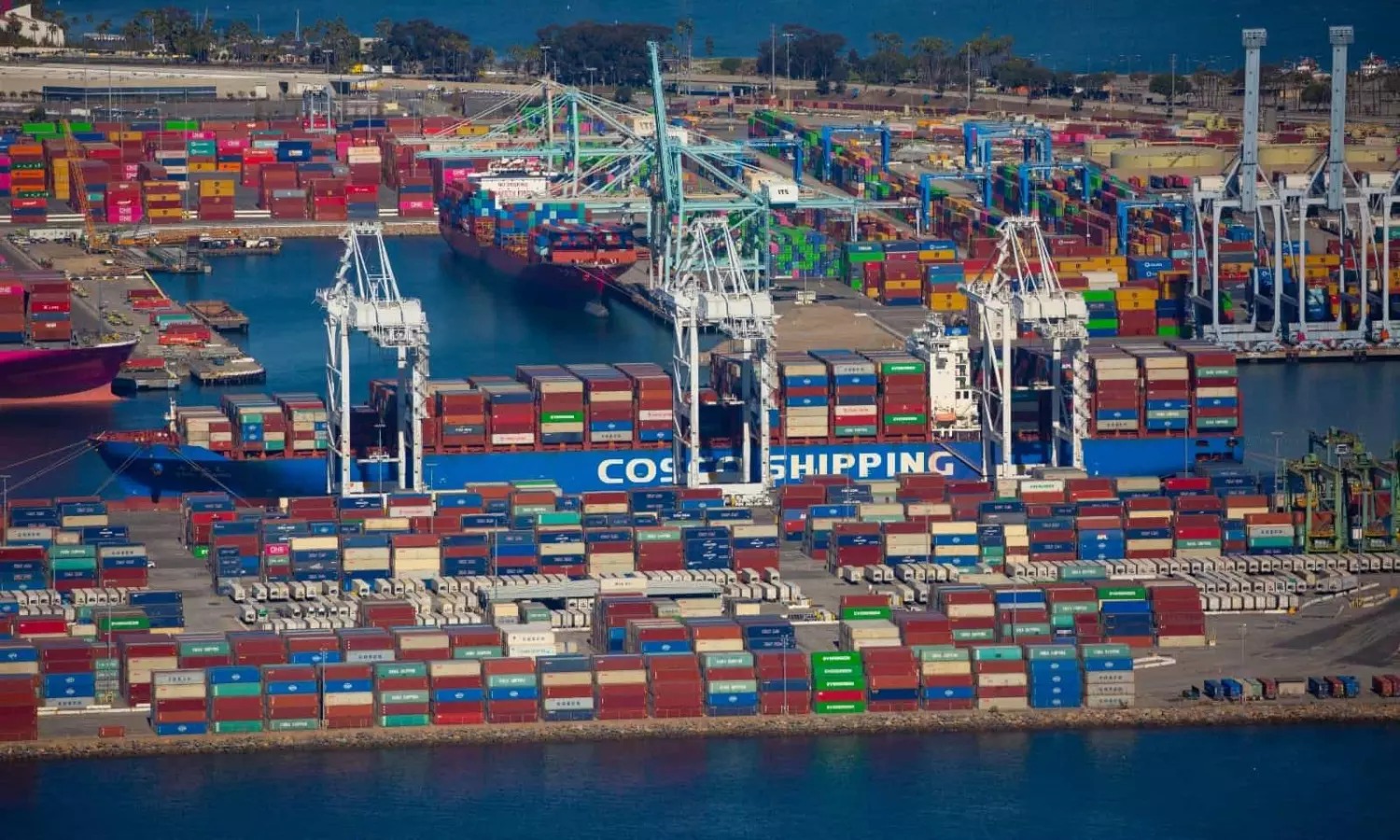Ports of LA/LB & Shanghai outline plans for green corridor
Carrier partners supporting plan have set goals to deploy reduced or zero lifecycle carbon capable ships by 2025

A voluntary partnership of leading maritime goods movement stakeholders, including the Ports of Los Angeles, Long Beach and Shanghai, some of the largest carriers in the world, and key leading cargo owners announced an outline for the implementation of the green shipping corridor.
The creation of the first-ever green shipping corridor is to accelerate emissions reductions on one of the world’s busiest container shipping routes across the Pacific Ocean, says an official release. "The plan is the first of its kind and was developed with support from C40 Cities as part of its effort to reduce carbon emissions from the largest cities in the world."
The carrier partners will begin deploying reduced or zero lifecycle carbon capable ships on the corridor by 2025, and work together to demonstrate, by 2030, the feasibility of deploying the world’s first zero lifecycle carbon emission container ship(s), the release added. "Carrier partners include CMA CGM, COSCO Shipping Lines, Maersk and ONE. Core partners include the Shanghai International Port (Group), China Classification Society and the Maritime Technology Cooperation Centre of Asia."
Gene Seroka, Executive Director, Port of Los Angeles says: "This trans-Pacific green corridor will be a model for the global cooperation needed to accelerate change throughout the maritime industry. Reducing emissions in this corridor will yield substantial reductions. For perspective, most of the emissions associated with moving cargo by ship occur in the mid-ocean part of the journey between ports. This corridor will help reduce mid-ocean emissions while continuing the work we have done to cut emissions within our ports."
Mario Cordero, Chief Executive Officer, Port of Long Beach adds: "This initiative will drive emissions reductions across the world's largest ocean and lead to greener practices from supply chain participants along these vital trade routes. The new and innovative vessel technologies, increased availability of sustainable fuels and better practices created through this green corridor will also impact society's transition to a cleaner future far beyond the areas served by our ports."
Mark Watts, Executive Director, C40 says: “C40 is proud to support this first-of-its-kind green shipping corridor aimed at demonstrating that zero-carbon shipping at scale is feasible by 2030, and that less polluting ships and ports will also mean cleaner air, less noise and more jobs for local communities.”


